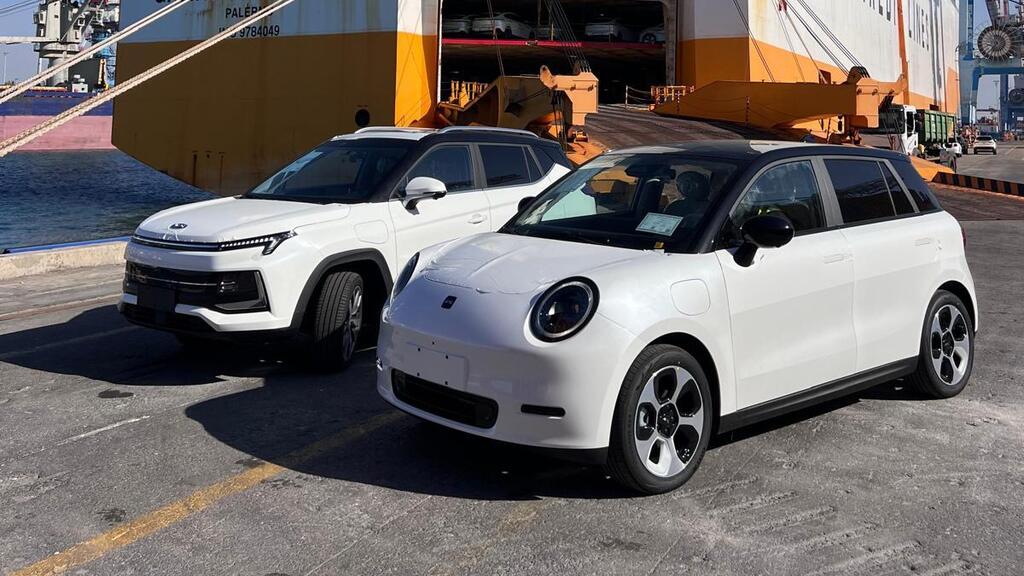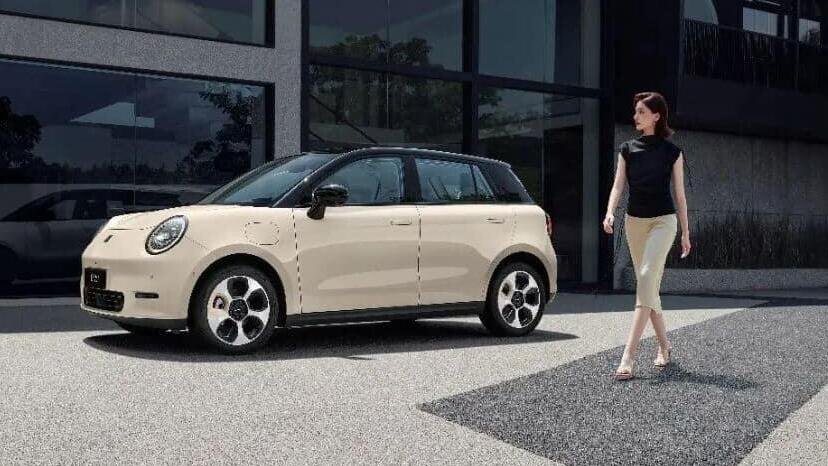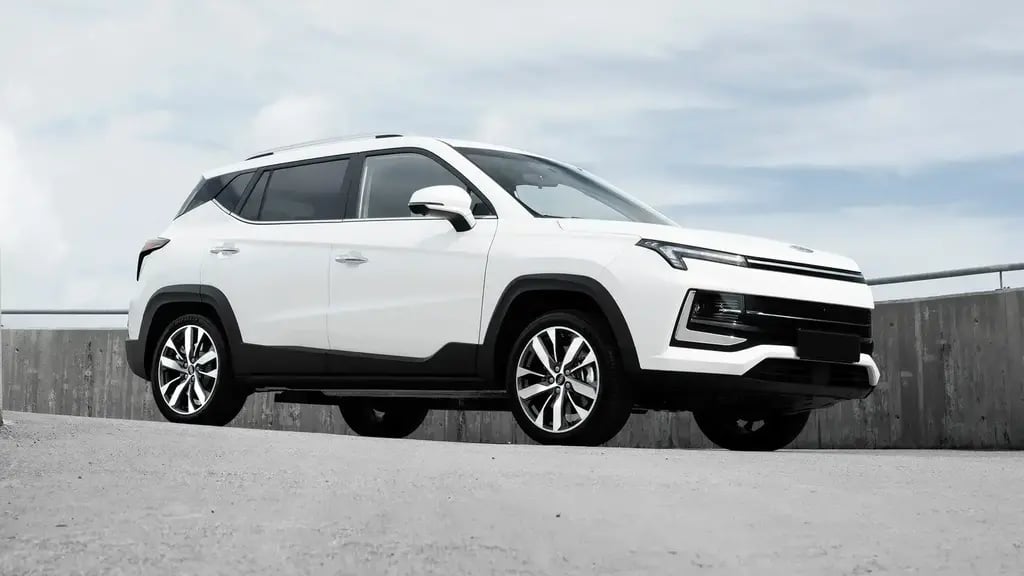Getting your Trinity Audio player ready...
JAC, one of China's veteran automakers, is resuming its operations in Israel after partnering with Automax, one of Israel's largest parallel importers, which has taken over the import license previously held by EV Motors. The first shipment has already arrived in Israel, and two electric models will be initially marketed in a limited production run of 400 units per year.
Currently, the company’s models don’t include active safety systems, but Automax promises that they will be integrated once full certification is obtained.
The 30, a new model for the manufacturer in Israel, was unveiled at the Shanghai Auto Show (under the name Yiwei 3) about a year and a half ago. Similar to the upcoming Dongfeng Nano Box, it aims to provide an alternative to gasoline-powered subcompact cars, costing NIS 130,000 ($34,000).
Its dimensions are larger than typical for its category. Compared to the Toyota Yaris, it’s 8.5 cm longer (402.5 cm) with a wheelbase extended by 6 cm (262 cm) and a trunk capacity of 310 liters.
The electric motor delivers 136 hp, with front-wheel drive and a 51.5 kWh battery providing a theoretical range of 374 km (232 miles). Fast charging (70 kW) can recharge the battery from 30% to 80% in 40 minutes and the battery also supports external device operation (V2L).
The driver’s environment includes a digital instrument panel (6.2”) and a large 15.6” touchscreen, with compatibility for Apple CarPlay and Android Auto. The model boasts a rich features list, including 360-degree parking cameras, faux leather upholstery with electric adjustment, heating and ventilation for the driver, as well as a sunroof.
Taking center stage is the 40 (formerly known as the e-JS4), introduced with minor updates and a price tag of NIS 150,000 ($39,000) — marking a NIS 10,000 ($2,600) discount. It aims to compete with pricier bestsellers like the Geely Geometry C and the BYD Atto 3.
The main update is the model’s addition of three-phase charging (previously single-phase), significantly reducing home charging times.
The drivetrain remains unchanged, featuring a front electric motor (190 hp) directly powering the nearby wheels, enabling acceleration from 0-100 km/h (0-62 mph) in 8 seconds, slightly slower than direct competitors. A 65.7 kWh battery offers a standard theoretical range of 410 km (255 miles), with fast charging (60 kW) refueling the battery from 30% to 80% in 45 minutes.
The features list includes a digital instrument panel and touchscreen (10.25” each), 360-degree parking cameras, faux leather heated front seats with electric adjustments for the driver and a sunroof. Like its smaller sibling, it lacks advanced safety systems but supports Apple and Android connectivity.
Get the Ynetnews app on your smartphone: Google Play: https://bit.ly/4eJ37pE | Apple App Store: https://bit.ly/3ZL7iNv
In recent years, Chinese automakers have flooded the Israeli market, now holding over 20% of new car sales. While most of these brands entered through large, established importers, that hasn’t always been the case.
The odds of JAS succeeding this time appear higher despite its models’ lack of advanced safety systems. This is due not only to the new importer’s experience in selling new cars, its wide customer base and its established distribution network but also because the lineup is more up-to-date and competitive than before.




